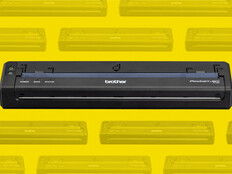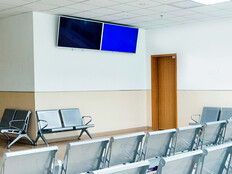Virtual Assistants Help Seniors Make the Most of Their Golden Years
Alexa is the name on everyone’s lips at the Carlsbad by the Sea retirement community in California. Amazon Echo’s voice-activated assistant has been in residents’ homes since February, when the nonprofit organization that runs the community, Front Porch, launched a pilot program of the tech for residents interested in trying it.
Despite a recent Saturday Night Live spoof of the technology’s effectiveness in senior living, it has been successfully assisting residents with a variety of tasks, MIT Technology Review reports. Those participating in the pilot, most of whom are in their late 80s, are using their Echoes for simple tasks, such as setting alarms, streaming music, listening to audiobooks, or staying updated on topics like sports, the news, the weather or the time.
One 79-year-old resident with hand tremors tells the source that he prefers to search the web using Alexa rather than his laptop or smartphone.
Going forward, Front Porch also hopes to improve the residents’ proficiency with the technology, teaching the residents in the program how to connect with family and friends.
The source reports:
They can make calls via voice commands using Amazon’s Alexa-to-Alexa calling service, which is compatible with other Echo devices and Amazon’s Alexa smartphone app. If they want to send and receive text messages, they can use an Alexa “skill,” or app, called Marvee that translates voice snippets into text and delivers them to pre-specified contacts.
In the future, the Echoes will tie in with smart gadgets in residents’ rooms, like plugs and thermostats, allowing the residents to adjust everything from lighting to room temperature via the device.
SIGN UP: Get more news from the HealthTech newsletter in your inbox every two weeks
Personal Assistants Carve Out a Space in Senior Living
While there are still some frustrations in speaking with and understanding the device, the deployment is just one more example of how the above-65 age group is showing a growing acceptance for tech.
A Pew report released in May found that about 42 percent of adults aged 65 and older report owning a smartphone. This use has increased significantly since 2013, when a survey revealed that just 18 percent of seniors owned the devices.
Personal gadgets like Amazon Echo, Google Home and Apple HomePod are especially making an impact on seniors. Many older people are using the tech to prevent loneliness.
Further, older adults with dementia are finding the technology can help them reclaim a certain amount of independence by setting the assistant to remind them when to take their medication or by providing instant and correct answers to questions they may have to ask repeatedly, Daily Caring reports.
Moreover, one company, Elliptic Labs, is looking to infuse personal home assistants with ultrasound technology that could be used to ensure residents in assisted living facilities are OK.
“Essentially, ultrasound can be added to any device that needs to know you are there,” Guenael Strutt, head of product development for Elliptic Labs, told MIT Technology Review in a separate article. The company is targeting personal assistants because of their growing popularity.








